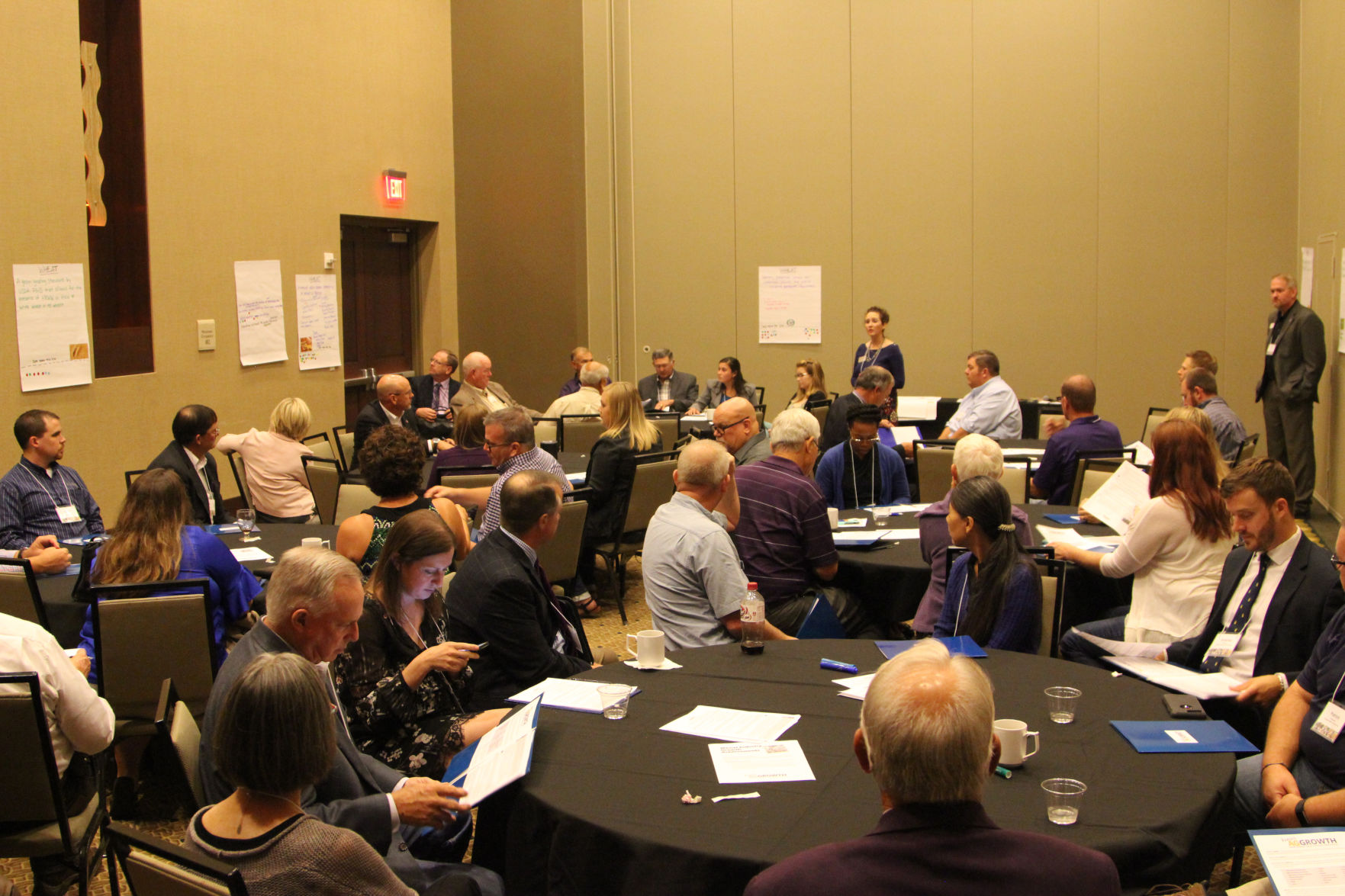There was a capacity crowd of farmers, ranchers and other rural stakeholders at the Kansas Governor’s Summit on Agricultural Growth, Aug. 23. The third annual summit, held in Manhattan, Kansas, looks at each sector of the Kansas agricultural economy and brings a workshop approach to finding innovative ideas for growth.
Breakout sessions focused on each sector and participants were asked to prioritize challenges and come up with actionable solutions to address them. Several innovations and new programs have come from this Growth Summit in the past. One example is the recent Cattle Trace pilot project. A collaboration among the Kansas Livestock Association, Kansas Department of Agriculture and Kansas State University, which is developing and testing the infrastructure capable of following cattle movement through the supply chain for disease traceability.
Following the summit, the Kansas Department of Agriculture will compile the input and post those ideas to the Ag Growth Project website agriculture.ks.gov/AgGrowthStrategy/growth-strategy.
Both Gov. Jeff Colyer and Lt. Gov. Tracey Mann were in attendance and praised the innovation, efficiency and productivity of Kansas producers.
“We are no longer a commodity-driven state,” Colyer said of the recent investments in agriculture infrastructure. “We are a value-added state.”
Kansas agriculture accounts for $68 billion of receipts for the state and much of that is exported. Trade and trade agreements are critical to the success of Kansas agriculture, Colyer said. There are 1.3 billion people and their markets outside of Kansas borders and it’s imperative to remind those potential customers that we are a reliable source of production in the quantities needed and the qualities they deserve, no matter the goings on in Washington, D.C.
“We know that 44.5 percent of the Kansas economy relates to agriculture,” Mann said. “And while Kansas is caught in the crossfire of this trade war, and property taxes are going up and ag prices are lower and we have a drought that’s on the forefront of all of our minds, there are some bright spots.” He cited the recent industry building projects around the state, including the Dairy Farmers of America plant that is online and operational in Garden City, the new Cargill Protein Innovation Center in Wichita, and construction of the new American Royal facilities near Kansas City, Kansas.
While the team may only have five months left in office, Mann reminded attendees they are still working on projects that may take longer than their term to complete.
“Let’s move the state forward,” Mann said of their philosophy. “Just like in football, if someone else gets the ball across the line and gets the credit, that’s fine.” It’s still a score for the team.
Kansas Secretary of Agriculture Jackie McClaskey, sees this summit and outcomes from past summits as a way to advance Kansas into the agricultural economy of tomorrow.
“We come together, as an industry, to move agriculture forward,” she said. This year’s summit brought all stakeholders together to make that happen.
Jennifer M. Latzke can be reached at 620-227-1807 or [email protected].



